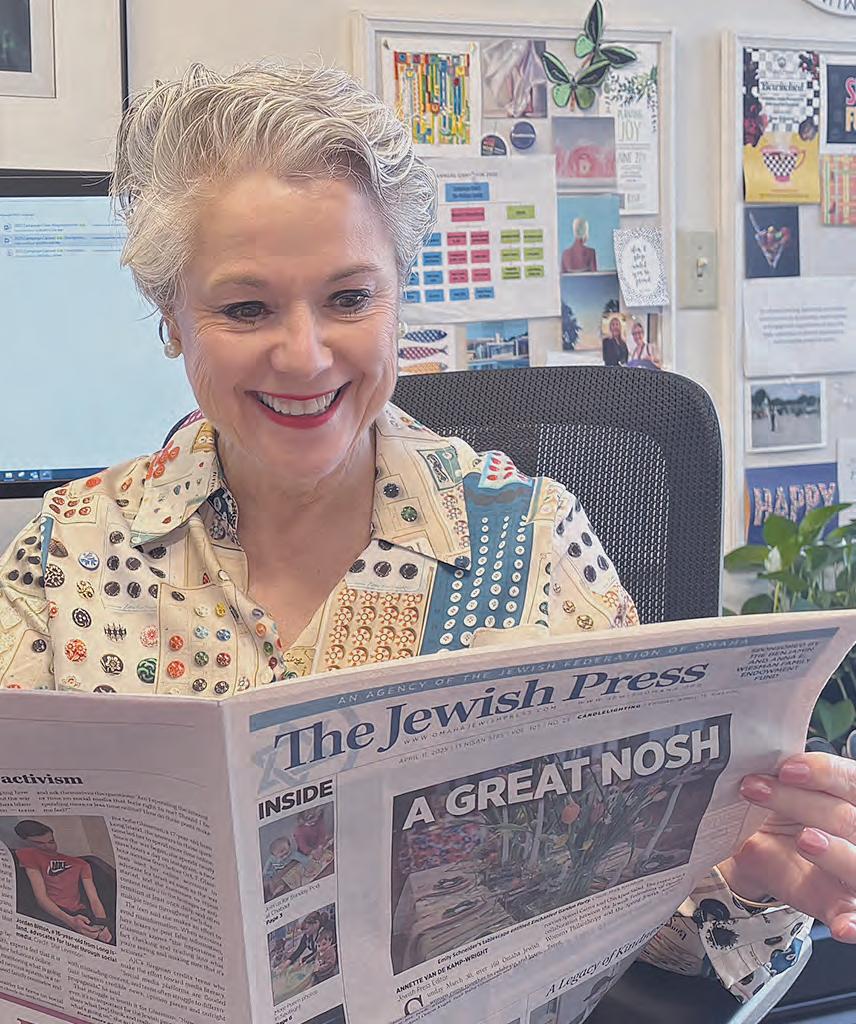






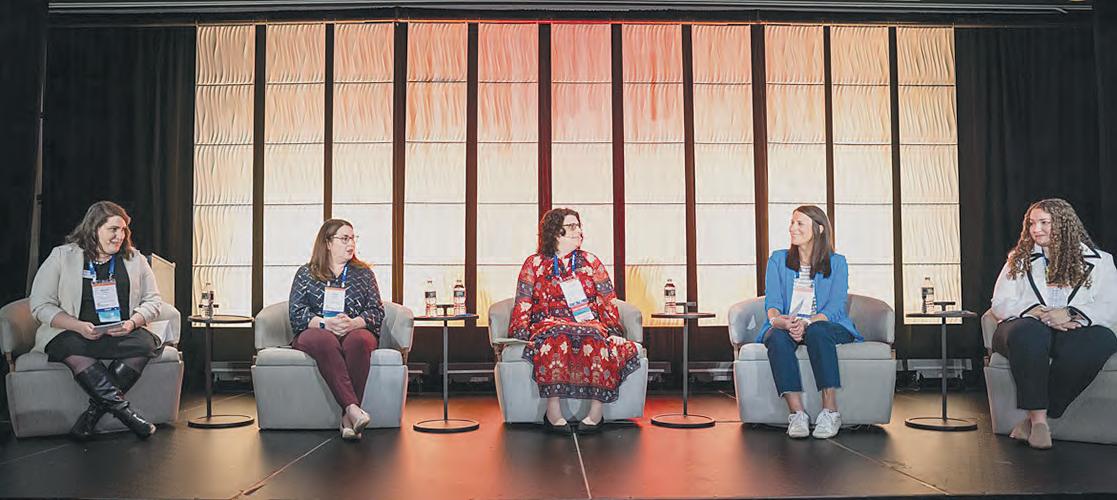
BRAD ABRAMSON
JFO Foundation Development Manager
Last month, I had the opportunity to attend the Life & Legacy Conference in Springfield, Massachusetts. Hosted by the Harold Grinspoon Foundation, the conference brought together professionals and volunteers from across North America who are working to build long-term sustainability through legacy giving. The Foundation’s Life & Legacy program assists communities in promoting afterlifetime giving to build endowments that will provide financial stability for our Jewish day schools, synagogues, social service organizations, and other Jewish entities.
“Check out” these recent additions to the KripkeVeret Collection
SHIRLY BANNER
JFO Library Specialist
Juvenile:
Turtle Rocks by Audrey Galex
Turtle Rocks is an inspiring, whimsically-illustrated book with a timeless message about the power of perspective, curiosity, and hope; about teamwork, friendship, and supporting others; about perseverance and resilience. It is an enduring story that children of all ages will enjoy, one that makes an excellent gift for young and older adults navigating transi-

tions where uncertainty looms large and the road ahead is unclear. Perfect for school graduation, new job, and milestone lifecycle event of any kind. Turtle Rocks is also a story of faith and See Kripke-Veret Collection pg 2
Legacy giving is all about making a lasting impact by including a gift to a nonprofit in your will or estate plans. It’s a way for people to support the causes and organizations they care about most, even after they’re gone. These gifts can be big or small and might come in the form of money, stocks, or even property. For our Jewish community, legacy giving is a meaningful way to pass on values, support future generations, and help ensure that the schools, synagogues, and organizations we love continue to thrive for years to come.
One theme that stood out was the challenge of donor fatigue in communities that have been participating in the See Life & Legacy page 5
JFO Foundation Executive Director
This June, the Jewish Federation of Omaha Foundation is offering an exciting opportunity to maximize your charitable giving. During our limited-time Donor-Advised Fund (DAF) Drive, you can receive an 18% incentive when you open a new donor-advised fund with a minimum gift of $2,500. That means you can receive up to $1,800 in additional charitable dollars — funds that can be recommended to any Jewish nonprofit you choose.
But that’s not all. If you designate your DAF incentive dollars to the Rose Blumkin Jewish Home (RBJH) Renovation Project, your gift can double thanks to a dollar-for-dollar match now through July 2025. Prefer to support the broader Jewish community? Your DAF incentive can also enhance your Annual Campaign gift for 2025–2026, boosting your regular contribution and helping to sustain the programs and services that matter most.
How It Works:
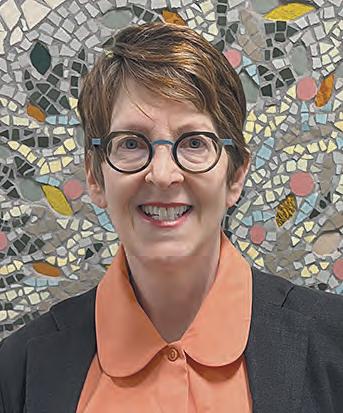
• Open a new donor-advised fund this June with a minimum contribution of $2,500.
• Receive an 18% incentive, up to $1,800.
• Recommend the incentive to any Jewish nonprofit, including:
• The RBJH Renovation Project, eligible for a dollar-for-dollar match
• The 2025–2026 JFO Annual Campaign, to boost your annual giving, or, any designated Jewish nonprofit.
Watch our latest video using the See Your Giving page 2
Continued from page 1 belief in yourself. It's a story that inspires you to reach for your dreams and face your obstacles with wonder and confidence. It's also a story that encourages you to reach out to others when you need a hand, and to help others, even with something as seemingly simple as a kind word.
Adult:
Marble Hall Murders by Anthony Horowitz
Theodore “Teddy” Hartigan is the scion of a wealthy Washington, D.C. family who place him into a comfortable job at the State Department. Editor Susan Ryeland has left her Greek island, her hotel and her Greek boyfriend, Andreas, in search of a new life back in England.
inside the book.
Desperately, Susan tries to prevent Eliot from putting himself in harm’s way — but his behaviour is becoming increasingly erratic. Another murder follows . . . and suddenly Susan finds herself to be the number one suspect.
Continued from page 1 QR code – DAF Basics.

Outside of the incentive for opening your new DAF, subsequent grants can support Jewish and secular causes. Donor-advised funds are a powerful way to simplify your charitable giving, support the causes you care about, and involve your family in philanthropy. Take advantage of this limited-time offer to amplify your impact. Questions? Ready to get started?
Freelancing for a London publisher, she's given the last job she wants: working on an Atticus Pünd continuation novel called Pünd’s Last Case. Worse still, she knows the new writer. Eliot Crace is the troubled grandson of legendary children’s author Miriam Crace who died twenty years ago. Eliot is convinced she was murdered — by poison.
To her surprise, Susan enjoys reading the manuscript, which is set in the South of France and revolves around the mysterious death of Lady Margaret Chalfont, days before she was about to change her will. But when it is revealed that Lady Margaret was also poisoned, alarm bells begin to ring.
Once again, the real and the fictional worlds have become dangerously entangled. And if Susan doesn't solve the mystery of Pünd’s Last Case, she could well be its next victim.
Swimming to Jerusalem by Seth Bornstein
Swimming to Jerusalem is the story of Bram Goodman: his family, friends, colleagues, and demons.
Reach out to Amy Bernstein Shivvers, 402.334.6466 or ashivvers@jewishomaha.org today to learn more and open your fund. Your generosity can go farther than ever before, let’s make it count!


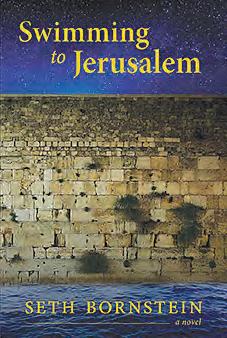



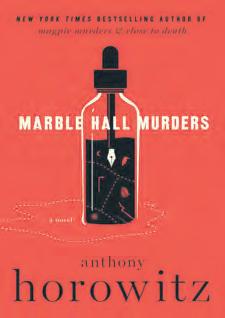

The more Susan reads, the clearer it becomes that Eliot has deliberately concealed clues about his grandmother’s death
Born in Paris, he spent his childhood in Israel and moved to Brooklyn as a teenager. When he flunks out of college, Bram returns to Israel in an effort to find a sense of purpose. He enlists in the Army with Yoni, his cousin and best friend. Their tour of duty is uneventful until, nearing the end of their service, they find themselves on the Lebanon frontier confronting the horrors of war. After his discharge, an aimless and disillusioned Bram makes his way to Paris. Busking on the Boulevard SaintGermain, he meets Liz and follows her back to New York.
Decades later, with a family and career, Bram uses his irreverent personality and sharp humor to mask the tragic events of his youth. When Theo, his youngest child, seeks to learn about his heritage, Bram begins to confront the past that he has attempted to keep at bay. It is a journey that will take him back, both emotionally and physically, to a place he thought he could leave behind.

The Rose Blumkin Jewish Home (RBJH) is a crown jewel of our campus and it belongs to all of us. By updating our existing facility and transitioning to all private rooms, we can ensure that the RBJH remains the facility of choice for the Jewish community and that its financial viability is preserved. The Rose Blumkin Jewish Home is our safety net. Let’s take care of it together.
Time! This match is available now until July 31, 2025!
Thanks to two amazing community champions, Tom Fellman and Howard Kooper, for this dollar-for-dollar matching gift opportunity!
One week after the horrific firebomb attack targeting peaceful Jewish marchers in Boulder, Colorado, Mayor Aaron Brockett — in partnership with the Combat Antisemitism Movement (CAM) — convened on Monday an emergency regional summit responding to an alarming recent rise in antisemitic violence.
“This is a time when we come together to support each other, support our Jewish community, and to call out the antisemitism at the root of this attack,” said Mayor Brockett in opening remarks at the forum held on the campus of the University of Colorado Boulder. “I’m proud to say we’ve seen a huge amount of that here in Boulder over the past week.”
“We have a very long road ahead for recovery and healing in our community, certainly for the victims,” he added. “But I’m very much looking forward today to learn the lessons about how we can do better moving forward, how we can support our Jewish community, combat antisemitism, and make sure that these kinds of things never happen again. Because, to be clear, hate and antisemitism have absolutely no place in the city of Boulder, in the state of Colorado, or anywhere in the United States.”
The Boulder attack and the murder one week earlier of a young couple outside a Jewish museum in Washington, D.C., are part of a disturbing national and worldwide pattern fueled by growing radicalization, misinformation, and hostility.
to walk in public without fear of being attacked. The terrorist attack in Boulder is a stark reminder that when hate speech is tolerated, violence follows. Phrases like ‘Globalize the Intifada’ are not abstract — they are calls to action that incite violence. We must recognize and confront antisemitism in all its forms, ensuring that our communities remain safe for all residents.”
The summit was also addressed by Rabbi Yehuda Kaploun, U.S. President Donald Trump’s designee to serve as the next State Department Special Envoy to Monitor and Combat Antisemitism. In his speech, Kaploun underscored the importance of interfaith cooperation in the fight against antisemitism.
“I think it’s important that we all stand together and our voices are heard,” Kaploun said. “What steps can we take to work to prevent the next round of ‘How do we fight antisemitism?’ Because what we’re doing now currently isn’t achieving the goals that we need to have happen. The misinformation, the lies, the ‘genocide’ rumors, these have be stopped. It stops through education. It stops through calling out individuals immediately. When you hear something antisemitic, I urge, I plead with you, I beseech you, condemn it immediately. Hold people accountable.”
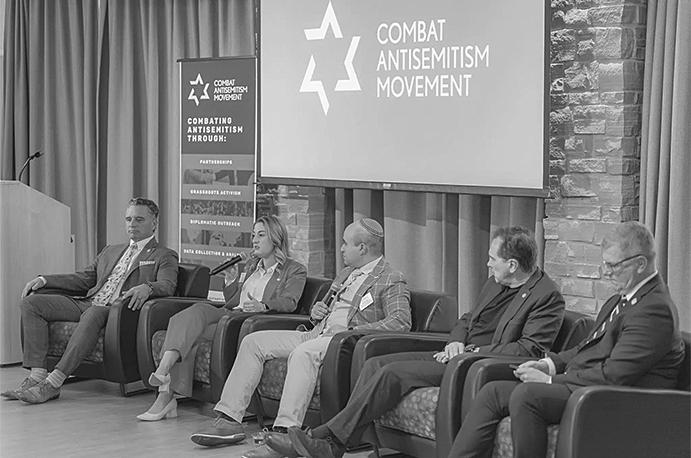
“Antisemitism is not just a Jewish problem — it’s a global emergency,” said CAM Chief Government Affairs Officer Lisa Katz. “And if we wait for someone else to act, or for the next tragedy to strike, it will already be too late.”
“Today’s summit is about tools,” Katz noted. “It’s about strategies. It’s about shared learning and joint action. But it’s also about something deeper — moral clarity. The courage to say what needs to be said — and to do what needs to be done — even when it’s uncomfortable, unpopular, or inconvenient.”
The gathering brought together top municipal and state decisionmakers, as well as law enforcement personnel, educators, faith leaders, and community stakeholders from across the Mountain West and Great Plains to share best practices, devise plans, and coordinate decisive action to confront extremism and secure and nurture Jewish life.
Omer Shachar, an organizer of the “Run For Their Lives” walk that was attacked on June 1, shared his traumatic experience from that day.
“I was surprised by the sudden sound of glass shattering, and I was terrified to see members of our group were on fire,” he recalled. “I realized immediately that we were under attack. I screamed ‘Run’ when I noticed that one of the participants, an 82-year-old woman, had fallen and was in flames. I tried to remove her from the blaze, but the heat had melted her skin and she was slippery to the touch.”
Shachar added, “Over the past week, it’s been difficult for me
‘Write With Us,’ our small and intimate writing workshop (no need to be nervous) continues in the Fall. Upcoming workshops are scheduled for Thursdays June 26, July 24,

“This is not a time to hope and pray antisemitism goes away,” he added. “The only way this goes away is by all of us being vigilant, calling it out, and educating people that hate is not tolerated in this country, or for that matter, anywhere in the world. Antisemitism must be eradicated.”
State-level legislators who attended the summit included Kansas State Senate President Ty Masterson, Kansas House of Representatives Majority Leader Chris Croft, Nebraska State Senator Brian Hardin, and Oklahoma State Representative Emily Gise. These lawmakers participated in a panel discussion on states-oriented strategies and initiatives to counter antisemitism.
Cities represented by their mayors at the summit, all located in Colorado, included: Bennett, Boulder, Brighton, Castle Rock, Centennial, Commerce City, Edgewater, Golden, Lafayette, Louisville, Lyons, Morrison, Northglenn, Superior, Thornton, and Westminister.
Colorado Springs and Erie were also represented by municipal officials.
The event also featured a series of presentations by security and law enforcement experts, interfaith activists, local Jewish organizational officials, and a Jewish student at the University of Colorado Boulder.
The forum was originally scheduled as the third regional mayoral follow-up to the 2024 North American Mayors Summit Against Antisemitism in Beverly Hills, California, with the previous ones being held in Santa Fe, New Mexico, in February and Selma, Alabama in March. The event’s scope was expanded following last weekend’s attack in Boulder.
Aug. 28, Oct. 30, Nov. 13 and Dec. 11 from 5-7 p.m. in the Noshery at the Staenberg Omaha JCC. Register by contacting Jessi at jtaylor@jewishomaha.org or Annette at avande kamp@jewishomaha.org. There is no cost to attend, although donations are always welcome.
If you have wanted to write your family’s story, that great American novel, or you have always wanted to try your hand at poetry, join us! Maybe you are already an accomplished writer, but you would benefit from being in a room with other writers. Perhaps you have convinced yourself you can’t write at all, but would love to try. Everyone, from absolute beginner to professional, is welcome to attend. We will provide the kosher snacks and the writing prompt.


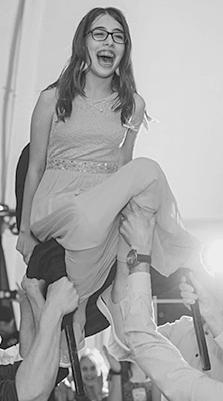





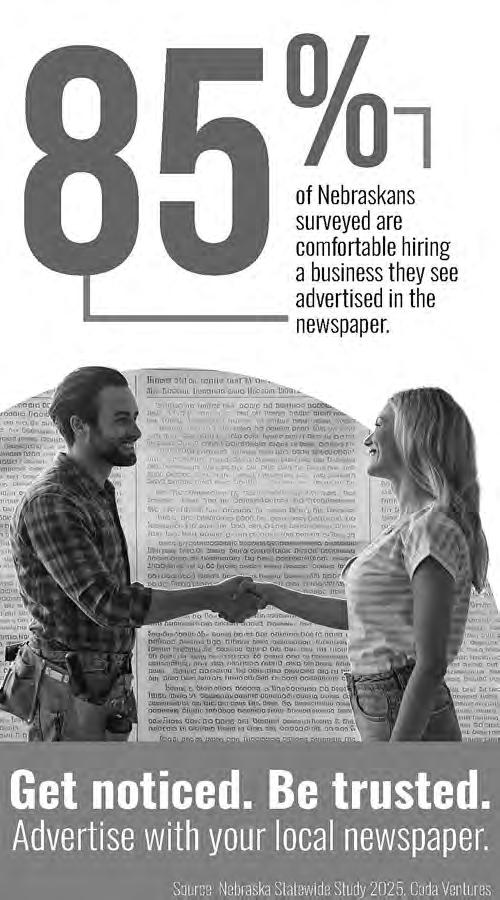
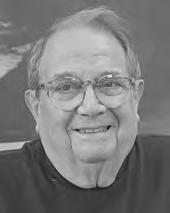
When I was a boy in the mid-1930s my May 30th birthday always fell on what was then called Decoration Day. It was a national holiday when families honored those who gave their life defending our country. Many people decorated the graves of their fallen ancestors. It was a one-day holiday, everything was closed, even the grocery and drug stores, and my father always stayed home from his dental office. Many years later that all changed, including the name of the holiday. Memorial Day became a long weekend, nothing was closed, but the important and serious purpose of the holiday remained.
As a child when Decoration Day and my birthday coincided, I thought the holiday everyone celebrated was just for me. It did wonders for my developing ego.
My mother always prepared a large celebration for me. She invited all my uncles and aunts (I had 19 of them), most of whom lived in Omaha, as well as those among my 18 first cousins who were old enough to come to the party. Because these relatives always came in small groups spread out all afternoon, she served a simple meal of hot dogs and potato chips with ice cream and birthday cake. Most of them usually brought a small gift, appropriate for a boy my age.
Aunt Rose was different.
She was my father’s older sister. She and her husband Bob lived on modest means and she always brought me a greater present than any of my other relatives.
Aunt Rose was an attractive woman. In her childhood, my grandfather took her with him to show her to his friends. The time I’m speaking about she was in mid-life, always welldressed and well-mannered. And she always spoke to me before giving me her gift.
“Sit with me, Dick,” she said. “I want to give you this gift which I’m holding on my lap. But before I hand it to you I have a question (it was always the same). Do you know when Uncle Bob’s birthday is?” “Sure I do,” I answered, “it’s tomorrow, May 31st.”
“That’s right,” she would respond with a smile. And then she would wrap her arms around me and hold me tight and give me one of those wet kisses right on my cheek. I always said thank you, and took her gift which was usually more extravagant than she could afford.
In later years when Bob was ill, Rose earned the family living by making and selling cotton candy to young and old who were attending the amusement park owned by the husband of her younger sister. Because of her warm personality and hard work, she sold more cotton candy than anyone else. Rose was in her early 70s in 1980 and I was deep in politics. At the time, I was the Democratic nominee for the US House
of Representatives in the Second Congressional District in Nebraska, and I was doing well in the polls a few weeks before the election. On election day Reagan beat Carter and Democrats all over the country lost, and I did, too, but I received more votes in the Omaha District than President Carter did.
In the middle of that campaign Rose called me. “Dick, I want to help you win. You know I can’t give you a big contribution but can you find something for me to do?” I told her I’d find something and call her back. After checking with my staff and telling them about Rose, I called her.
“We’ve got the perfect way for you to help me,” I told her. “I would like you to come with me in the afternoon when I’m campaigning at senior living sites.”
“That sounds great,” she said. “When do we start and what should I wear?” “We’ll start tomorrow afternoon, and I’ll pick you up. Wear what you wear when you go to services at the Synagogue,”
The next day Rose was ready and we were off to campaign at a senior center in South Omaha. The residents were all former laborers who had worked in the packinghouses. All were from ethnic backgrounds. They were nearly all union members and Democrats.
She asked me, “What should I do?”
“I’m going to ‘work the room’ and start at one end and go all around, shaking hands and introducing myself. You just stand next me, and when I’m visiting with each person just hand them one of my campaign cards and smile and say I hope you vote for Dick.”
A small two-piece band began playing, and one by one, couples began dancing. The music was from the big band era of the ‘40s and ‘50s. Pretty soon Rose whispered to me. “Dick, they’re playing a polka. Do you know how to polka?” I did, and said, “Rose, let’s dance.”
We went to the dance floor amid all the couples and circled the floor a few times, but soon I noticed the dancers were returning to their seats. The band kept playing the same polka, over and over, and we were the only ones on the dance floor. Rose whispered to me, “Dick you do this better than I thought you could, but we’re all alone out here.”
We were, alone, just the two of us, dancing the polka. And soon those who had been dancing began to clap for us. The band played one more polka. Everyone was clapping, Rose was smiling, and we kept dancing until the band stopped Then came a big round of applause.’
Everyone stood, and the woman in charge of the center came out and thanked us.
Aunt Rose was all smiles. She hugged me in front of everyone, and whispered in my ear.
“I love this. Can we do it again?”
We did.
And she was wonderful.
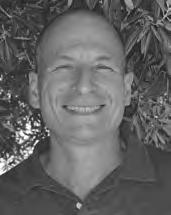
The June 1 firebombing of a “Run for Their Lives” in Boulder, CO, has exacerbated the already frayed nerves of American Jews. First came the arson committed at the home of Pennsylvania Governor Josh Shapiro, then came the killing in Washington D.C. of Sarah Milgrim and Yaron Lischinsky, and now another hate-crime against Jews. All this is taking place while Israel is still at war in Gaza, a time when antisemites are disguising their views as legitimate criticism of the State of Israel. And yet to Israelis, talk of a “shattering of our sense of security” (as per Halie Sofer, chief executive of the Jewish Democratic Council of America) and op-eds like “Jews are Afraid Right Now” (by Sheila Katz, chief executive of the National Council of Jewish Women, in the NY Times) strike us as exaggerated. Though it has not received a lot of press coverage recently, the Houthis in Yemen are continuing their missile attacks against Israel. If you are extremely disturbed by a terrorist incident that took place hundreds or even thousands of miles from your home, can you imagine going to sleep after a missile siren has sounded?
Our recent experiences of the missile siren here in Ra’anana came on Monday night June 2 at around 9 p.m. and the next night at around 10 p.m. We had company during the first siren: our son Elie, his wife Hadar, and their three small children were in the middle of packing up after spending the Shavuot holiday with us. The siren was greeted by Yehuda (6), Ayala (4), and Itamar (21 months) with much excitement, as Sarah ushered everyone into our home’s “safe room” (like our elderly neighbor with whom we share the bomb shelter, I tend to continue what I am doing when a siren sounds). After a few minutes, everyone came out of the shelter; sometimes you can hear the Iron Dome’s interception of the missile, but this time we did not. The kids were chattering about the experi-
ence but not alarmed in any way (they tend to take cues from the adults around them; of course, it’s quite a different story if there is a siren in the middle of the night: who likes to be woken up at 3:00 a.m.?). Then Elie and his family drove off to their home in Jerusalem. I’ll just remark in passing that the kids have gotten so used to sirens that Yehuda over the holiday showed me how if you put your hands around your mouth in a certain way and blow through them, it makes a sound similar to a siren.
Dear Reader: The Israeli attitude to fear management can be summarized by my friend Shlomo Dubinsky’s motto: “If the road is open, drive.” Going back 25 years when we both lived in Givat Ze’ev, Shlomo came up with his motto during the terror attacks of the Second Intifada. A few miles of road separated our “West Bank” town from Jerusalem, with Arab villages on either side of the road, and people were very concerned about that drive. The basic principle is a reliance on the state’s security apparatus. If those who are paid to protect us (and these are people with much more information than us) deem it okay to travel on Highway 436 to Jerusalem, then it’s safe to make the trip. In terms of American life, this doesn’t mean that you should not be vigilant; i.e., if you see a suspicious person hanging around your children’s Jewish day school you should certainly report him. But it does mean that not only may you attend synagogue services in Seattle without fear but you may also do so in Boulder. There are security people charged with protecting you, and you can take your cues from them. So by all means: if there is a Jewish film festival near you, or a rally at an Israeli consulate, or a “Run for Their Lives” calling for the release of the hostages, or just a pick-up basketball game at your JCC, get out there and “drive.”
Teddy Weinberger, Ph.D., made aliyah with his wife, former Omahan Sarah Jane Ross, and their five children, Nathan, Rebecca, Ruthie, Ezra, and Elie, all of whom are veterans of the Israeli Defense Forces; Weinberger can be reached at weinross@gmail.com
GRACE GILSON
JTA
As Tuesday June 10 marked the 613th day in captivity for the hostages in Gaza, the families of the hostages are making a call for a “day of good deeds.”
Jon Polin and Rachel Goldberg-Polin, whose 23-year-old son Hersh was killed in Hamas captivity in August 2024, launched the initiative in a post on Instagram Monday, June 9, calling on the public to “flood the world with goodness and light.”
The couple chose the day 613 because the number corresponds with the number of mitzvahs outlined in the Torah. There are currently 55 remaining hostages in Gaza, of whom 20 are thought to remain alive.
“Join us on Day 613 as we flood the world with goodness and light in merit of all the cherished hostages coming home. Now-er than NOW,” the couple wrote in the caption.
The Polin-Goldbergs directed the public to share their good deeds in a public website where over 90 users had already contributed on Tuesday morning. The couple organized a similar initiative for a week in July 2024 in which they invited the public to do good deeds to promote the release of the remaining hostages.
“It was the most strengthening, invigorating week of our challenge in trying to save the hostages,” Jon Polin said in the Instagram reel.
The call comes as another initiative was launched by Israeli President Isaac Herzog Tuesday to hold a day of fasting and prayer for the hostages.
In an address Tuesday at a swearing-in ceremony for 28 newly appointed rabbinical judges, Herzog called on the chief rabbis of Israel to make a declaration for the day of fasting.
“I call upon you to take action, and I propose that you do everything in your power—first and foremost, to declare a general day of fasting and prayer for our brothers and sisters held by murderers,” said Herzog in a statement.
Sephardic Chief Rabbi David Yosef said in a press release that the rabbis accepted the call, and would “announce this in the coming days.”

For more information, call 1-800-521-0600, ext. 2888 (US) or 01-734-761-4700 (International) www.il.proquest.com How is
Continued from page 1
Life & Legacy program for several years. While initial enthusiasm is often strong, sustaining momentum over time requires creativity and adaptability. It was fascinating to learn how some communities have successfully overcome this challenge by focusing on engaging a younger generation of donors. By leveraging social media campaigns, targeted email strategies, and a fresh approach to community and social events, organizations are finding new ways to connect. Hosting missiondriven, engaging events and personalizing outreach efforts have helped keep legacy giving top of mind even for those who may not have previously considered it.
For example, one community launched a “Next Gen Legacy Shabbat” series, featuring casual and meaningful Friday night gatherings held in private homes or communal spaces. These events invited younger adults to learn about legacy giving in a relaxed setting, hear testimonials from peers, and explore how giving aligns with their personal values and identity. Importantly, there was not a financial ask at these gatherings as they were designed to be educational, offering a welcoming space to learn about how one can give back through legacy philanthropy. Initiatives like this not only introduced legacy concepts to new audiences but also reinvigorated interest and energy across the broader donor base. It was also refreshing to see that the use of artificial intelli-
gence was not frowned upon but encouraged. Communities were urged to embrace technology like using AI tools, donor data, and automation to enhance communication and efficiency. The message was clear: use the technology available to you and your donors and meet them where they are.
On the final day of the conference, Life & Legacy coordinators from across the country gathered for a retreat. This was a unique opportunity to discuss real-life situations we’ve been navigating and to share how each of our communities handles similar challenges. While we all come from very different places and contexts, it was powerful to see that we are united by the same core mission and commitment to building a legacy-minded culture.
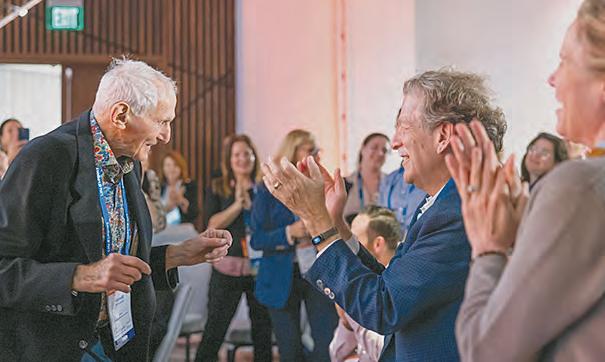
Another important takeaway was that education is key to keeping the conversation about legacy alive. Consistent communication, storytelling, and community education help donors understand the lasting impact they can make. Relationship building isn’t just about the first meeting but it’s about cultivating a lasting, meaningful connection that grows over time.
If you’ve ever thought about the impact you want to leave behind, now is the time to start the conversation. You are part of our local Jewish community, your voice and action matter. Talk to a community leader, learn about your options, and consider how you can be part of shaping a legacy that will support future generations for years to come.
By becoming part of the past.
This publication is available from ProQuest Information and Learning in one or more of the following ways:
• Online, via the ProQuest® information service • Microform
• CD-ROM
• Via database licensing


Editors Note: The following articles are reprinted from the July 1 and 8, 1955 editions of the Jewish Press
LONDON (WNS)-Prime Minister Anthony Eden, in a nationwide radio broadcast on the tenth anniversary of the founding of the United Nations, cautioned that the Arab-Israel conflict constituted a threat to world peace and that the recurrent Arab-Israel conflicts had reached the “flash point of danger.”
At the same time the Prime Minister referred to the peace efforts of U.N. truce chief General Burns and said the Canadian General and his truce observers merited “thanks and encouragement” in view of their “especially difficult task.”
JERUSALEM (WNS)-Minister of defense David Ben Gurion will return to the post of Prime Minister after the elections to Knesset July 26, according to rumors circulating in this city.
Moshe Sharett will retain his post as Foreign Minister, a portfolio he has been holding since the first Israeli government was formed in 1948. Evidence cited in substantiation of the rumors is the fact that repairs are being made in the offices Ben Gurion occupied when holding the top post. Ben Gurion’s official residence is Sdeh Boker, but he has been living in Tel Aviv, seat of the offices of the defense establishment, since resuming the office of Defense Minister. As Premier, Ben Gurion would have to live in Jerusalem.
TEL AVIV (WNS)-Egyptian infiltrators have again blown up the main water pipeline in the Negev, the second such incident in a week. It was disclosed here by military officials who said Israel was taking a serious and grave view of the depredecations “because they prove the actions are carried out by trained Egyptian army personnel.”
Meanwhile the Israel-Egyptian Mixed Army Commission
voted condemnation of Egypt for having laid a mine in Israeli territory, where three Israeli soldiers were wounded, two serously, in the explosion. Simultaneously the commission censured Israel for retaliating with fire when the explosion occurred.
SPRING VALLEY, N.Y. (JTA)-The proposal by some Reform rabbis to ordain women as rabbis was termed here “a blasphemous attempt to transform the rabbinate to a social service agency.” The attack on the proposal was made at the 13th annual conference of the Rabbinical Alliance of America, an organization affiliated with the Orthodox rabbinate.
Addressing the delegates, Rabbi C.U. Lipschitz, national director of the Rabbinical Alliance, took issue with Dr. Barnett Brickner, president of the organization of Reform Rabbis, who described women as having “special spiritual and emotional fitness to be rabbis.”
Rabbi Mendel Feldman, president of the Rabbinical Alliance, told the delegates that “the trend towards the Synagogue, Temple and Church, in these trying days, replete with tensions and anxieties, pose a serious threat of diluting traditional Judiasm of its rational elements.”
OMAHA-The Beth Israel Men’s Club will hold its steak fry and wiener roast tomorrow evening Sept. 9, at 9:30 o’clock at the west end of Elmwood Park.
The program will include games and music at 11 p.m. to be held in Beth Israel’s Talmud Torah building.
Those attending are asked to bring their own food, and soda pop will be supplied. Members are urged to bring their friends with them.
A spokesman stated: “We are counting on you to furnish the most important ingredients for this big party-the people to enjoy the fun!”

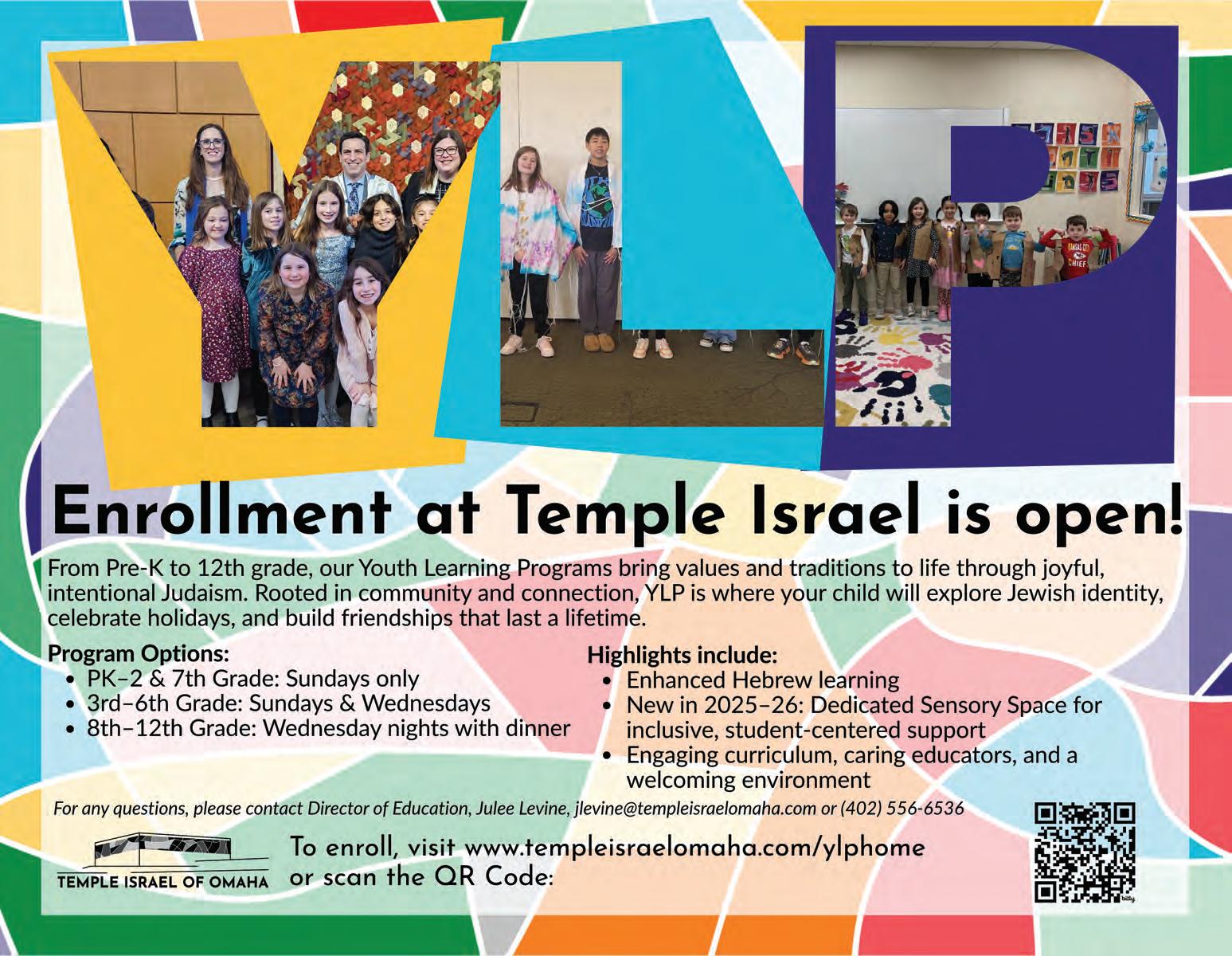
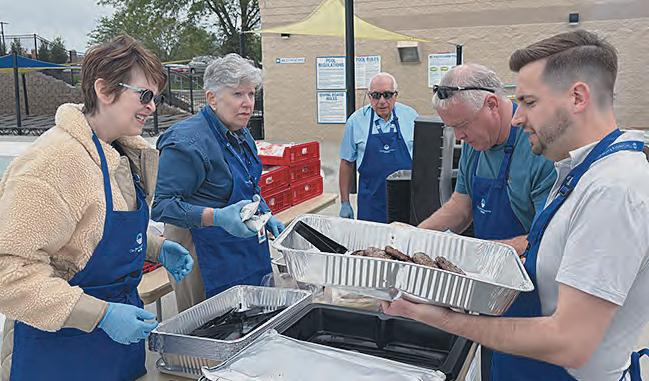
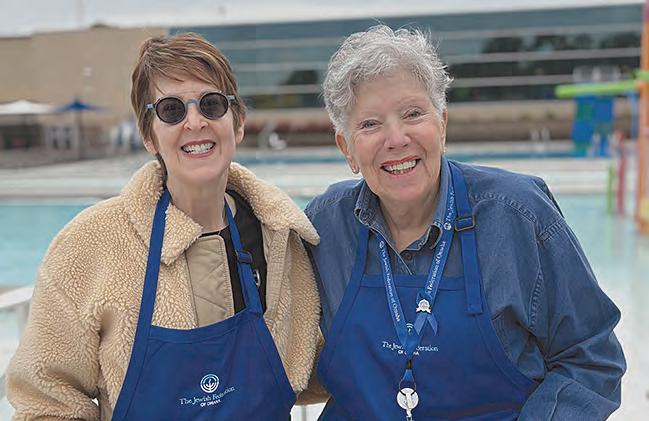
Friday May 23, the JFO leadership team served lunch to employees on the Goldstein Aquatic Center pool deck, to show appreciation for everyone’s hard work.
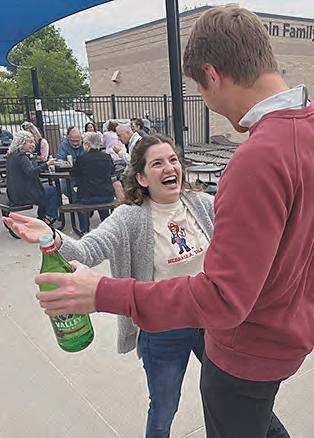
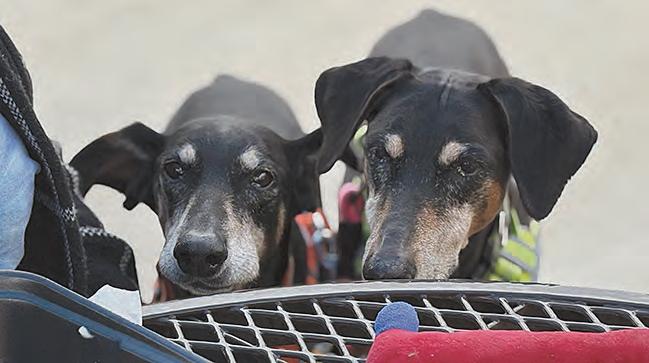
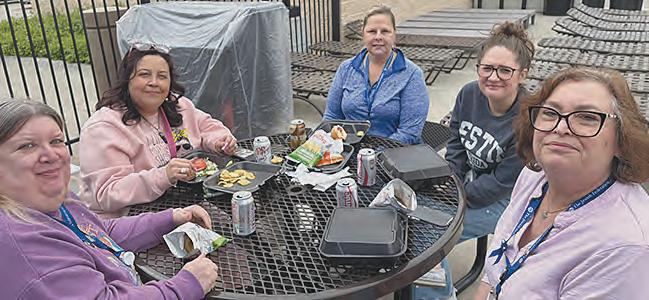
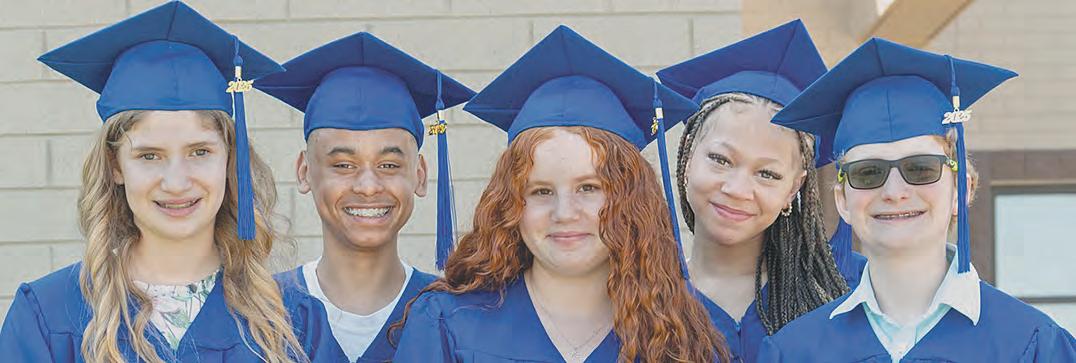
Congratulations to the Friedel Jewish Academy 2025 graduates! We know you'll go on to do amazing things.
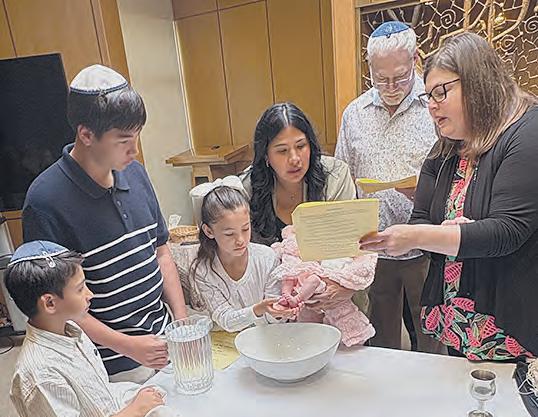

Elianna Jayne Benton was officiallwelcomed during a naming ceremony at Temple Israel. Elianna is the daughter of Adrianna and Jay Benton.
PHOTOS FROM RECENT JEWISH COMMUNITY EVENTS
SUBMIT A PHOTO: Have a photo of a recent Jewish Community event you would like to submit? Email the image and a suggested caption to: avandekamp@jewishomaha.org
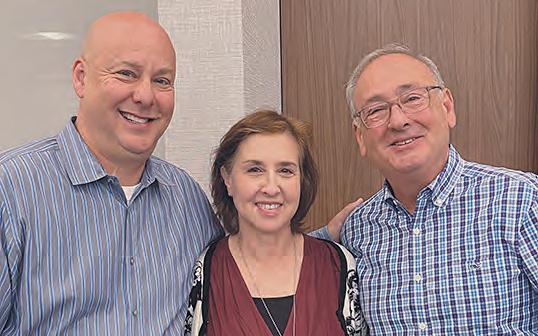
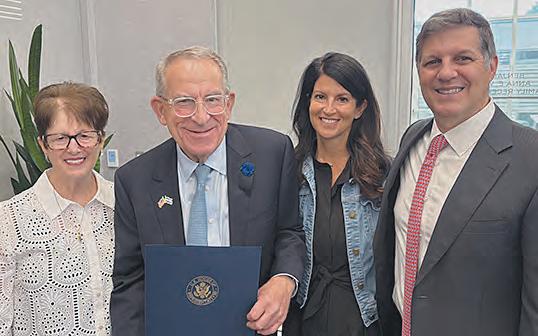
GENEROUSLY SUPPORTED BY
Celebrating Doris and Harry Alloys 73rd Wedding Anniversary, on May 25th.
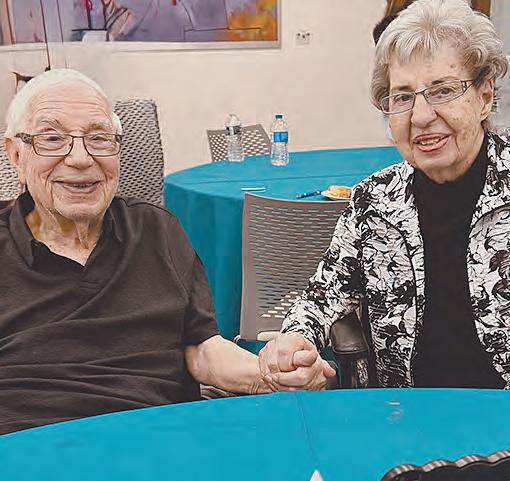
May 27, Pam and Bruce Friedlander were honored by Congressman Don Bacon. Also honored were Sharon Brodkey, executive director of the JCRC,

(Founded in 1920)
David Finkelstein
President
Annette van de Kamp-Wright
Editor
Will Fischer
Creative Director
Claire Endelman
Sales Director
Lori Kooper-Schwarz
Assistant Editor
Sam Kricsfeld
Digital support
Mary Bachteler
Accounting
Jewish Press Board
David Finkelstein, President; Margie Gutnik, Ex-Officio; Helen Epstein, Andrea Erlich, Ally Freeman, Dana Gonzales, Mary Sue Grossman, Hailey Krueger, Chuck Lucoff, Larry Ring, Melissa Shrago, Suzy Sheldon and Stewart Winograd.
The mission of the Jewish Federation of Omaha is to build and sustain a strong and vibrant Omaha Jewish Community and to support Jews in Israel and around the world. Agencies of the JFO are: Institute for Holocaust Education, Jewish Community Relations Council, Jewish Community Center, Jewish Social Services, Nebraska Jewish Historical Society and the Jewish Press Guidelines and highlights of the Jewish Press, including front page stories and announcements, can be found online at: www.jewishomaha.org; click on ‘Jewish Press.’ Editorials express the view of the writer and are not necessarily representative of the views of the Jewish Press Board of Directors, the Jewish Federation of Omaha Board of Directors, or the Omaha Jewish community as a whole. The Jewish Press reserves the right to edit signed letters and articles for space and content. The Jewish Press is not responsible for the Kashrut of any product or establishment.
Editorial
The Jewish Press is an agency of the Jewish Federation of Omaha. Deadline for copy, ads and photos is: Thursday, 9 a.m., eight days prior to publication. E-mail editorial material and photos to: avandekamp@jewishomaha.org ; send ads (in TIF or PDF format) to: rbusse@jewishomaha.org
Letters to the Editor Guidelines
The Jewish Press welcomes Letters to the Editor. They may be sent via regular mail to: The Jewish Press, 333 So. 132 St., Omaha, NE 68154; via fax: 1.402.334.5422 or via e-mail to the Editor at: avandekamp@jewishomaha.org.
Letters should be no longer than 250 words and must be single-spaced typed, not hand-written. Published letters should be confined to opinions and comments on articles or events. News items should not be submitted and printed as a “Letter to the Editor.”
The Editor may edit letters for content and space restrictions. Letters may be published without giving an opposing view. Information shall be verified before printing. All letters must be signed by the writer. The Jewish Press will not publish letters that appear to be part of an organized campaign, nor letters copied from the Internet. No letters should be published from candidates running for office, but others may write on their behalf.
Letters of thanks should be confined to commending an institution for a program, project or event, rather than personally thanking paid staff, unless the writer chooses to turn the “Letter to the Editor” into a paid personal ad or a news article about the event, project or program which the professional staff supervised. For information, contact Annette van de Kamp-Wright, Jewish Press Editor, 402.334.6450.
Postal
The Jewish Press (USPS 275620) is published weekly (except for the first week of January and July) on Friday for $40 per calendar year U.S.; $80 foreign, by the Jewish Federation of Omaha. Phone: 402.334.6448; FAX: 402.334.5422.
Periodical postage paid at Omaha, NE. POSTMASTER: Send address changes to: The Jewish Press, 333 So. 132 St., Omaha, NE 68154-2198 or email to: jpress@jewishomaha.org
Editorials express the view of the writer and are not necessarily representative of the views of the Jewish Press Board of Directors, the Jewish Federation of Omaha Board of Directors, or the Omaha Jewish community as a whole.
ANNETTE
VAN DE KAMP-WRIGHT
Jewish Press Editor
“The director of a new organization founded to advance the priorities of Health and Human Services Secretary Robert F. Kennedy Jr. has extensively promoted the Protocols of the Elders of Zion, a famous antisemitic forgery,” Andrew Lapin recently wrote for Jewish Telegraphic Agency.
“Leland Lehrman, who last month was named executive director of the MAHA Institute, also believes Israel may have been behind the 9/11 terror attacks, and has inveighed against “high-level Jewish Illuminists, or Lucifer worshipers.” That’s according to a new report from the Institute for Research and Education on Human Rights, a social justice watchdog group founded by an acclaimed Jewish researcher on white nationalism, detailing Lehrman’s views and writing.”
Good times.
It’s almost a relief, this familiar, old-fashioned bizarre prejudice. In discussing Lehrman’s thinking regarding the Jews, Lapin mentioned that Lehrman has a Jewish father. While that may seem counterintuitive, I think it actually explains quite a lot. If you want to rebel against your parentage, what better way to do so than by perpetuating stereotypes about your parent’s very identity?
Those Protocols, though. Why won’t they go away?
According to Lapin, “Lehrman wrote that the Protocols were “most likely authentic, and therefore represent the most thorough indictment of Jewish Supremacism known to man.” He also asserted that the document would “virtually guaran-
tee a political and historical awakening which will unavoidably lead to an understanding of the continuing problem of Jewish racism and supremacism,” and said Jews were responsible for bringing about “the New World Order.”
Published initially in a Russian newspaper in 1903, it is the most widespread antisemitic conspiracy ever, according to the US Holocaust Museum. The book claims to consist of meeting minutes from a group of secretive Jewish leaders who aim to keep the world in a state of unrest and ultimately take over. While its author didn’t invent the antisemitic tropes included in the Protocols, he brought several existing stereotypes together in one handy source. Although the London Times disproved it in 1920, it’s been republished endlessly since, with the internet only spreading it further. Of course, this whole “ruling the world” business isn’t actually happening, but that does not seem to be a deterrent.
mediately called out for it. And I know, the rest of the country has grocery prices to worry about, and ICE raids, and taxes, and tariffs, and on top of that, we are not so popular at the moment anyway.
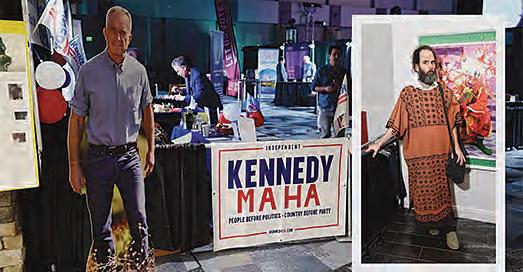
A Kennedy MAHA booth was present at the Independent National Convention in Denver, CO, on Sept. 19, 2024. Credit: Hyoung Chang/The Denver Post via Getty Images; Inset: Leland Lehrman attends the Roni Willett And Walid Layadi-Marfouk Host U.N. General Assembly Exhibition Africa House Second Generations Closing Reception at Africa House on Sept. 27, 2018, in New York City. Credit: Jared Siskin/Patrick McMullan via Getty Images
During the 122 years of its existence, the Protocols have inspired everything from pogroms to antisemitic literature; it’s difficult to gauge exactly how widespread the damage is. Would the world look different without it? I somehow think not. Even without a source like this, I think hate would find a way.
It may sound naïve, or even callous, but I am not so worried about Leland Lehrman specifically. He is just one man, and who even knows how long he will stay in the job. What I am concerned about is the fact that it is seemingly okay to publicly accept the Protocols as a source of truth, and not be im-
But I remember a time when dumb conspiracy theorists were laughed at. When the notion that Jews are Satanists (should that be capitalized?) or caused 9/11 were good for a laugh and nothing else. I remember when being an outspoken antisemite actually got you canceled, made you lose your job, was cause for scorn.
But suddenly, it’s no longer about a single person in the public eye being a little weird or problematic. It’s about antisemitism having become normalized. And that should worry us all.
I joined the crowds for Boulder’s Run for Their Lives on Sunday.
SUSANNA SPEIER
BOULDER, COLORADO | JTA
I noticed the overcast sky immediately but didn’t see the drones above my head until they were mentioned by someone else. Drones were hovering between Star Wars-style speeder-bike moves and others were tethered to rooftops and high enough to capture the full expanse of a college town nestled into the edge of the Flatiron Mountain Range.
My attention now shifted to the military snipers with precision shooters balanced on tripods above the pastry-lace trim of Boulder’s historic buildings. I wondered how many there were. It looked like someone had placed clusters of toy plastic soldiers along an expanse too wide for my field of vision to take in. At 5 foot 2 inches, I had no way to tell where the crowd began and ended.
It was Sunday, one week after a man firebombed Boulder’s Run for Their Lives group, and my chapter of the Israeli-hostage solidarity movement in Denver was joining the Boulder team’s 18-minute walk down Pearl Street for the first time.
The average Denver weekly turnout ranges between 30 and 40. I was told that before the attack, the weekly Boulder walk hovered between 25 and 30 participants.
Yes, there is a participation uptick when new hostage deaths are verified or a hostage return negotiation attempt actually results in a homecoming. But I was shocked by the crowd that turned out on Sunday.
Anticipating maybe a few hundred participants at best, I was astonished when Run for Their Lives Denver’s co-leader and StandWithUs Colorado director Miri Kornfeld told me she thought there were more than 5,000 people present. Would they even know what Run For Their Lives was if a terrorist hadn’t set the participants of the previous week’s Boulder walk on fire with Molotov cocktails?
On hand was Colorado’s attorney general, Phil Weiser; Sens. Michael Bennet and John Hickenlooper and Representative Joe Neguse all walking with us, in solidarity. I also met several non Jewish allies at the walk and my phone buzzed with a supportive check-in from a non-Jewish friend on the way to Boulder.
This was the support all of us needed to sustain
our ongoing effort to advocate for the hostages’ immediate release.
The scene played out in other cities, too. In New York, several hundred people turned out for a rally in Central Park whose weekly attendance had dwindled. Other places restarted their Run For Their Lives after a hiatus.
The large crowds were heartening. But I also could detect the tensions that fueled the attack in the first place, spotting a quartet of masked, keffiyeh-clad counterdemonstrators holding Palestinian flags at a prominent corner crosswalk.
Later, I saw a short video showing two of those counter-demonstrators hurling the phrase “anti-Zionism is not anti-semitism” at a bar-mitzvah age kid wearing a kippah. Parents and security, on hand if needed, watched as the kid tried to explain how deeply he cared about the children in Gaza to the masked protesters who declared his feelings irrelevant because his group was marching with an Israeli flag. The child struggled to explain that their militant rhetoric had ramifications for his personal safety; the adults told the counter-demonstrators to go away.
group was noticing similar patterns.
After the deadly attack outside the Capital Jewish Museum in Washington, D.C., the Denver group crowdfunded a private security guard and now the Boulder group, with the support of other local Jewish organizations, is running a crowdfunding cam-
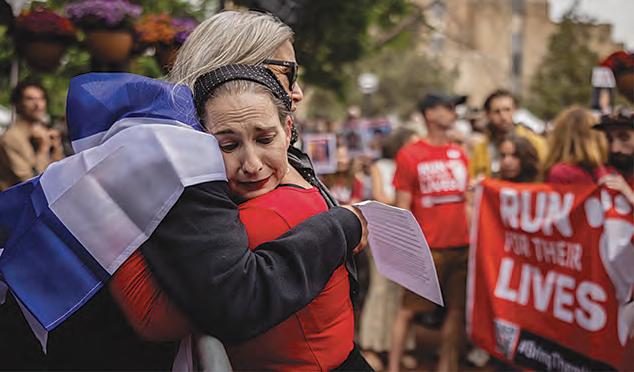
Rachel Amaru, an organizer for Run for Their Lives in Boulder, embraces Rachel Cohen, who was at the June 1 attack, on June 8, 2025, in Boulder, Colorado. Credit: Chet Strange/Getty Images
paign to support the victims of the firebombing attack and ensure future walks will have adequate security protection.
As someone who is Ashkenazi and secular I enjoy a privilege in that I can always opt to conceal my Star of David and Bring Them Home dog tag in environments that feel uncomfortable or unsafe. Participating in Run For Their Lives means forgoing this privilege once a week so I can continue to advocate for the safe and immediate return of all the hostages.
During the weeks leading up to the attack I was noticing anti-Jewish tension metastasizing in increasingly palpable ways. I realized that the walks are now serving as a kind of temperature gauge for what life for non-passing Jews is like in my local community.
Things have changed recently. A couple of weeks ago in Denver’s Washington Park, an expletivebracketed “Free Palestine” was hurled at me. During the weeks preceding the attack, the Boulder
The snipers on the roof, and the supporters in the streets, showed me that, at least for now, that those who want Jews to be able to demonstrate safely on behalf of the hostages outnumber those who want to make us feel unsafe.
But I found myself worrying about the future. What will the larger community support look like next week and the week after that and the week after? In Boulder, Sunday’s large turnout was also helped by the fact that a major Jewish cultural festival happened to be taking place that day. Will nonJewish allies even consider showing up for walks that are not punctuated by music, make-your-own snow cone machines, the opportunity to smell candles made in Safed, a pastrami food truck and soldout challah vendor tents? In a few days, we will see. Susanna Speier is a publisher and journalist based in Denver.
The views and opinions expressed in this article are those of the author and do not necessarily reflect the views of JTA or its parent company, 70 Faces Media.
Last week, we celebrated our son’s high school graduation in Israel. We gathered together with families of students — from diverse religious and ethnic backgrounds from all over the world — who earned their IB (International Baccalaureate) diploma at Younited, the boarding school on the shared-society campus of Givat Haviva, founded in 1949 to promote peace between Jews and Arabs in Israel.
Graduations are filled with emotion, regardless of the setting, but in the wake of the violent antisemitic attack in our hometown of Boulder, Colorado, I felt a mixture of anger, sadness and confusion. People who are very dear to me in Boulder suffered second- and third-degree burns at the hands of a man who felt that terrorism would somehow “free Palestine.”
I spoke to one of the victims, a close friend of ours, just hours before attending the graduation, and felt deeply troubled and helpless from afar. In my current role as interim co-executive director at Congregation Bonai Shalom, where many of the victims and witnesses to the attack are members, we received press requests from a wide array of news outlets over the last week. It has been difficult to be away from my community while they are so deeply hurt and struggling for support. We send our love and wishes for a full recovery of both body and soul to all who were injured or witnessed the attack.
Life in the United States has become intensely divided. We left Boulder in 2019 to spend a year in Israel with our three kids, and ended up staying for five years. I wasn’t present for the seismic shifts that happened in American society during the pandemic and after the
Hamas attack on Israel on Oct. 7, 2023. Nuance was thrown out the window, and people found themselves on separate sides of an issue halfway across the world without much background or personal experience in the Middle East. Around the world, there aren’t mass protests about the war in Ukraine, human rights violations in Nicaragua, or the second genocide in just two decades in Sudan, but Israel/Palestine is ever present. The situation is complicated, and the media often seems to inflame rather than explicate.
Just prior to moving back to Boulder in July 2024, a former neighbor sent me a message via WhatsApp that was painful for me to receive. They believed that I wasn’t getting important news, which was the “prohuman rights” view of the situation in Israel and Gaza. Israel was cast as the genocidal, apartheid, settler/colonialist state, and Gaza as the victim whose brutal attacks were justified as resistance against an oppressive force. This person wasn’t interested in a dialogue or hearing anything from my perspective. Someone had “opened their eyes to the truth about Israel” over 40 years ago, and they felt compelled to educate me about the situation.
ent cultures and beliefs. I had to advocate for our kids when school picture day was scheduled on Rosh Hashanah or the school play on the night of the Passover seder. I figured it was simply an oversight on the part of the school administration, rather than an intentional action. I have always liked the fact that if there was something connected to Jewish life that

I wanted for our family, I have the ability to create it in Boulder. Our Jewish communal institutions feel welcoming and open to creativity and change. The Boulder I know and love is calm, sporty, engaged and well-educated. It was a shock to hear the news of a terror attack specifically targeting Jews in a public space in our beautiful hometown.
the conflict persists with hostages still being held captive and with so many innocent people, among them many children, losing their lives in Gaza and in Israel, every single day. Therefore, we are immensely grateful to all of you who honor us with their presence. We pray for an immediate end to the hostilities in the entire region, for the safe return of all hostages to their families, and for a peaceful solution to the conflict.
Many people don’t know how to calmly talk about Israel, but these recent graduates simply spoke of what they hope for the future.
They struggled together to forge relationships across significant barriers, studying for high-level exams while running to bomb shelters, and living with the stress of war. The IB curriculum focuses on critical thinking, a deep examination of facts vs propaganda, and verifying assumptions within a framework of knowledge. We desperately need this kind of learning and dialogue if we hope to co-exist in the world.
When reflecting on history, and witnessing the present political situation around the world, I don’t necessarily feel optimistic that the future will be better for the Jewish people. As Rabbi Jonathan Sacks wrote in his book, To Heal a Fractured World, Optimism and hope are not the same. Optimism is the belief that the world is changing for the better; hope is the belief that, together, we can make the world better.”
Even though this interaction overwhelmed my nervous system, for the most part, my experience of Boulder has been peaceful and friendly. It is not an extremely diverse town, but people are generally curious about differ-
My son and his best friend, a Palestinian Muslim, were two of the emcees for their graduation. They welcomed the guests to the event and then commented on the circumstances: We would like to acknowledge the devastating war that has been taking place for the last 18 months. It is incredibly difficult to celebrate while
After seeing my son and his friends overcome tremendous challenges to create a community of mutual understanding and respect, I do feel a glimmer of hope in a broken world.
The views and opinions expressed in this article are those of the author and do not necessarily reflect the views of JTA or its parent company, 70 Faces Media.
I picked a college close to home to feel safe. Here’s why I’m transferring to Israel.
This article was produced as part of JTA’s Teen Journalism Fellowship, where Jewish teens around the world report on issues that affect their lives | JTA
Last year, as I was applying to college in the fraught months after the Oct. 7 attacks and amidst the anti-Israel protests roiling campuses, I shared with JTA readers my criteria for picking a school. I explained how I was looking for campuses where students felt safe to be proudly Jewish, and where weekly Shabbat dinners and other gatherings were signs of Jewish vitality.
When I committed to Western Washington University in Bellingham, I had already decided that my best choice, given campus protests, was a school close to my home in Oregon. WWU’s active Hillel and Jewish Student Union reassured me that I would be able to find a community of Jewish students when I needed one.
Unfortunately the Jewish community is a small safe haven in a school where Jewish concerns about antisemitism are ignored.
A few weeks after I committed, I discovered that WWU had its own pro-Palestinian encampment. While I couldn’t find much mainstream media coverage of the situation, I received the campus-wide emails from the university president which, I later learned, significantly downplayed the situation.
At the time, I assumed the encampment had been fully condemned by faculty and was going to be quickly shut down. Eventually, I would learn that hundreds of faculty signed on to a letter supporting the encampment. Within the first week of arriving in Bellingham, about six hours from my hometown, I saw anti-Israel stickers on campus and at local music events. I disconnected myself from Jewish life almost immediately. This campus and city culture made me feel that I couldn’t be openly Jewish if I wanted to make friends. I did not attend any Jewish events. Before we even hit the six-week mark, a person I was just introduced to found out I was Jewish. They “just felt like they can’t trust Jews
anymore,” they told me to my face.
In late November, after keeping my head down and dealing with antisemitism from my peers for weeks, I finally began going to Shabbat dinners at Hillel and eventually started attending Chabad and Jewish Student Union events. When I began connecting with other Jews on campus, I learned what I didn’t know when I made my college decision: WWU has a history of antisemitism.
In 2017, a task force was created to combat antisemitic hatred after several campus incidents. Sadly, it seems as though the university is no longer upholding the findings and recommendations in the task force report. On May 5, the faculty senate voted to approve the American Association of University Professors’ national recommendations in response to President Trump’s executive order threatening to deport non-citizen students involved in pro-Palestinian protests on college campuses.
While even some Jewish groups have criticized the president’s order, AAUP went further, ignoring Jewish concerns about antisemitism. AAUP has courted controversy in recent years for, among other things, loosening its opposition to academic boycotts, apparently in response to calls for boycotts of Israel. Among other things, the AAUP recommendations call on universities to reject the International Holocaust Remembrance Alliance definition of antisemitism — a standard adopted by the United States, Canada, and many European Union member states — because it has “been utilized to silence and censor supporters of Palestine.”
The faculty senate also demanded that the university refuse to adopt rules that deem terms like “genocide,” “intifada” or “from the river to the sea” as “per se” discriminatory.
My fears around going to a school where faculty wouldn’t protect Jewish students and would actively contribute to the harm were fully realized.
Following the passing of the resolution, I emailed the Faculty Senate and expressed my concerns. The response I got from the senate president left much to be desired. He began
by trying to prove his allyship, saying that he shared his concern about campus antisemitism and mentioning that he put himself on the line to speak to the press about potentially antisemitic vandalism that happened in the fall. This does nothing to change the fact that Jewish students are now left without a definition or framework of what counts as antisemitism and what is worth reporting.
On May 19, I and two other students spoke to the senate on behalf of Jewish students, asking them to consider the impacts of this resolution on Jews on campus and providing proof that there was already significant and sufficient protection for academic freedom. While many members seemed receptive, the president of the senate had to ask the senators to be respectful before we spoke. Additionally, in the discussion period after, a representative for the United Faculty of Western Washington University became defensive, accusing me of asking for disciplinary action for a professor I mentioned in my statement
who had denied the rape of Israeli women on Oct. 7 and suffered no repercussions. I only brought up the professor’s name to demonstrate that free speech is already well protected on campus.
Every time a hostage poster was ripped down, or when the administration sent out an email downplaying antisemitic graffiti, or when a member of faculty denied my own perceptions of what was and wasn’t antisemitic, it occurred to me that the only place I could escape campus antisemitism would be Israel. Rather than continuing to be ignored by campus administration while ill-intentioned students and student groups are enabled, I plan to attend the Hebrew University of Jerusalem-Rothberg International School beginning next fall.
Being close to home does not mean that I am safer from antisemitism. To prioritize my education over the exhausting work of fighting administrative failures, I have to go somewhere even further.

B’NAI ISRAEL SYNAGOGUE
618 Mynster Street Council Bluffs, IA 51503-0766
712.322.4705 www.cblhs.org
BETH EL SYNAGOGUE
Member of United Synagogues of Conservative Judaism 14506 California Street Omaha, NE 68154-1980
402.492.8550 bethel-omaha.org
BETH ISRAEL
SYNAGOGUE
Member of Union of Orthodox Jewish Congregations of America 12604 Pacific Street Omaha, NE. 68154
402.556.6288 BethIsrael@OrthodoxOmaha.org
CHABAD HOUSE
An Affiliate of Chabad-Lubavitch 1866 South 120 Street Omaha, NE 68144-1646
402.330.1800 OChabad.com email: chabad@aol.com
LINCOLN JEWISH COMMUNITY:
B’NAI JESHURUN
South Street Temple
Union for Reform Judaism
2061 South 20th Street Lincoln, NE 68502-2797
402.435.8004 www.southstreettemple.org
OFFUTT AIR
FORCE BASE
Capehart Chapel 2500 Capehart Road Offutt AFB, NE 68123
402.294.6244 email: oafbjsll@icloud.com
TEMPLE ISRAEL
Union for Reform Judaism (URJ) 13111 Sterling Ridge Drive Omaha, NE 68144-1206
402.556.6536 templeisraelomaha.com
LINCOLN JEWISH COMMUNITY:
TIFERETH ISRAEL
Member of United Synagogue of Conservative Judaism 3219 Sheridan Boulevard Lincoln, NE 68502-5236 402.423.8569 tiferethisraellincoln.org
Monthly Speaker Series Service, Friday, July 11, 7:30 p.m. with our guest speaker. Our service leader is Jim Fried. Everyone is always welcome at B’nai Israel!
For information about our historic synagogue, please visit our website at www.cblhs.org or contact any of our other board members: Renee Corcoran, Scott Friedman, Rick Katelman, Janie Kulakofsky, Howard Kutler, Carole and Wayne Lainof, Ann Moshman, MaryBeth Muskin, Debbie Salomon and Sissy Silber. Handicap Accessible.
Services conducted by Rabbi Steven Abraham and Hazzan Michael Krausman.
IN-PERSON AND ZOOM MINYAN SCHEDULE:
Mornings on Sundays, 9:30 a.m.; Mondays and Thursdays, 7 a.m.; Evenings on Sunday-Thursday, 5:30 p.m.
FRIDAY: Kabbalat Shabbat Services 6 p.m. at Beth El & Live Stream.
SATURDAY: Shabbat Morning Services, 10 a.m. at Beth El and Live Stream
SUNDAY: Morning Minyan, 9 a.m. Zoom Only.
TUESDAY: Journey Through Grief, 6:15 p.m. with Wendy Hill.
THURSDAY: Mincha/Ma’ariv, 5:30 p.m. at Beth El & Zoom followed by Jennifer Kay Memorial Speaker — Patty Nogg.
FRIDAY-June 27: Nebraska AIDS Project Lunch, 11:30 a.m.; Kabbalat Shabbat Services 6 p.m. at Beth El & Live Stream.
SATURDAY-June 28: Simcha Shabbat, 10 a.m. at Beth El and Live Stream Please visit bethel-omaha.org for additional information and service links.
FRIDAY: Nach Yomi, 6:45 a.m.; Shacharit, 7 a.m.; Camp JYE BI, 9 a.m.; Mincha/Kabbalat Shabbat, 7 p.m.; Candlelighting, 8:43 p.m.
SATURDAY: Shabbat Kollel, 8:30 a.m.; Shacharit, 9 a.m.; Tot Shabbat 10:30 a.m.; Youth Class 10:45 a.m.; Soulful Torah, 7:45 p.m.; Mincha 8:30 p.m.; Kids Activity/Laws of Shabbos, 9 p.m.; Havdalah, 9:53 p.m.
SUNDAY: Shacharit, 9 a.m.; Life After Death Series, 9:30 a.m.; Mincha/Ma’ariv, 8:50 p.m.
MONDAY: Nach Yomi, 6:45 a.m.; Shacharit, 7 a.m.; Camp JYE BI, 9 a.m.; Mincha/Ma’ariv, 8:50 p.m.
TUESDAY: Nach Yomi, 6:45 a.m.; Shacharit, 7 a.m.; Camp JYE BI, 9 a.m.; Mincha/Ma’ariv 8:50 p.m.
WEDNESDAY: Nach Yomi, 6:45 a.m.; Shacharit, 7
a.m.; Camp JYE BI, 9 a.m.; Mincha/Ma’ariv 8:50 p.m.
THURSDAY: Nach Yomi, 6:30 a.m.; Shacharit, 6:45 a.m.; Camp JYE BI, 9 a.m.; Character Development, 9:30 a.m.; Mincha/Ma’ariv, 8:50 p.m.
FRIDAY-June 27: Nach Yomi, 6:30 a.m.; Shacharit, 6:45 a.m.; Camp JYE BI, 9 a.m.; Mincha/Kabbalat Shabbat, 7 p.m.; Candlelighting, 8:44 p.m.
SATURDAY-June 28: Shabbat Kollel, 8:30 a.m.;
Shacharit 9 a.m.; Tot Shabbat 10:30 a.m.; Youth Class, 10:45 a.m.; Soulful Torah, 7:45 p.m.; Mincha, 8:30 p.m.; Kids Activity/Laws of Shabbos, 9 p.m.; Havdalah, 9:53 p.m.
Please visit orthodoxomaha.org for additional information and Zoom service links.
All services are in-person. All classes are being offered in-person and via Zoom (ochabad.com/academy). For more information or to request help, please visit www.ochabad.com or call the office at 402.330.1800.
FRIDAY: Shacharit 8 a.m.; Lechayim, 5:30 p.m., go to ochabad.com/lechayim to join; Candlelighting, 8:42 p.m.
SATURDAY: Shacharit, 10 a.m. followed by Kiddush and Cholent; Shabbat Ends, 9:52 p.m.
SUNDAY: Sunday Morning Wraps, 9 a.m.
MONDAY: Shacharit, 8 a.m.; Personal Parsha, 9:30 a.m. with Shani Katzman; Intermediate Biblical Hebrew Grammar, 10:30 a.m. with Prof. David Cohen; Parsha Reading, 6 p.m. with Prof. David Cohen; Translating Words of Prayer, 7 p.m. with Prof. David Cohen.
TUESDAY: Shacharit, 8 a.m.; Aramaic Grammar, 10 a.m. with David Cohen; Translating Words of Prayer, 11 a.m. with David Cohen; Intermediate Biblical Hebrew Grammar, 6 p.m. with Prof. David Cohen; Introductory Biblical Hebrew Grammar, 7 p.m. with Prof. David Cohen
WEDNESDAY: Shacharit, 8 a.m.; Mystical Thinking (Tanya) 9:30 a.m. with Rabbi Katzman; Introductory Biblical Hebrew Grammar, 10:30 a.m. with Prof. David Cohen; Parsha Reading, 11:30 a.m. with Prof. David Cohen.
THURSDAY: Shacharit, 8 a.m.; Introduction to Alphabet, Vowels & Reading Hebrew, 10 a.m.; Advanced Biblical Hebrew Grammar, 11 a.m. with Prof. David Cohen; Talmud Study, noon-1 p.m.; Introduction to Alphabet, Vowels & Reading Hebrew, 6 p.m.; Code of Jewish Law Class, 7 p.m.
FRIDAY-June 27: Shacharit, 8 a.m.; Lechayim, 5:30 p.m., go to ochabad.com/lechayim to join; Candlelighting, 8:43 p.m.
SATURDAY-June 28: Shacharit 10 a.m. followed by Kiddush and Cholent; Shabbat Ends, 9:52 p.m.
Services facilitated by Rabbi Alex Felch. All services offered in-person with live-stream or teleconferencing options.
FRIDAY: Kabbalat Shabbat Service, 6:30 p.m. led by Rabbi Alex at SST; Shabbat Candlelighting, 8:43 p.m.
SATURDAY: Shabbat Service , 9:30-11 a.m. led by Rabbi Alex at TI; Torah Study noon on Parashat Shelach via Zoom; Potluck Dinner and Family Game Night, 6 p.m. at SST. Adults and kids of all ages are welcome. Please bring a dish to share; Havdalah, 9:53 p.m.
SUNDAY: Temple Garden Clean Up, 8:30– 10 a.m. at SST; Men’s Bike/Coffee Group, 10:30 a.m. at The Mill on the Innovation Campus. For more information or questions please email Al Weiss at albertw801@ gmail.com.
TUESDAY: Ladies' Lunch 1 p.m. Locations are decided upon at each lunch for the following month. For more information, please email Barbara Barron at oohhm mm.barb@gmail.com.
WEDNESDAY: Men’s Lunch Group, 12:15 p.m. at HoriSun, 8055 O St. We meet every other Wednesday. Contact albertw801@gmail.com to join and receive updates. Bring your own lunch and beverage
FRIDAY-June 27: Kabbalat Shabbat Service, 6 p.m. led by Rabbi Alex at SST; Final Friday Festivities, 7:30–8:30 p.m. at SST; Shabbat Candlelighting, 8:44 p.m.
SATURDAY-June 28: Shabbat Service , 9:30-11 a.m. led by Rabbi Alex at TI; Torah Study, noon on Parashat Korach via Zoom; Havdalah, 9:53 p.m.
FRIDAYS: Virtual Shabbat Service, 7:30 p.m. every first and third of the month at Capehart Chapel. Contact TSgt Jason Rife at OAFBJSLL@icloud.com for more information.
In-person and virtual services conducted by Rabbi Benjamin Sharff, Rabbi Deana Sussman Berezin, and Cantor Joanna Alexander.
FRIDAY: Drop-In Mah Jongg, 9 a.m. In-Person; Village Walking Group, 10 a.m. In-Person; Classic Shabbat Service, 6 p.m. In-Person & Zoom
SATURDAY: Torah Study, 9:15 a.m. In-Person & Zoom; Shabbat Morning Service, 10:30 a.m. In-Person & Zoom.
SUNDAY: Science + Spirit Prototyping Event for Temple Israel Members, 10 a.m. at Kiewit Luminarium (RSVP Required).
WEDNESDAY: Yarn It, 9 a.m. In-Person
FRIDAY-June 27: Drop-In Mah Jongg, 9 a.m. InPerson; Village Walking Group, 10 a.m. In-Person; Shabbat B’yachad Service, 6 p.m. In-Person & Zoom
SATURDAY-June 28: Torah Study, 9:15 a.m. In-Person & Zoom; Shabbat Morning Service, 10:30 a.m. InPerson & Zoom.
Please visit templeisraelomaha.com for additional information and Zoom service links.
As of January 1, 2025, the Jewish Press will charge $180 for the inclusion of standard obituaries, up to 400 words. Photos may be included if the family so wishes. For many years, we have held off on making this decision. However, it is no longer financially responsible for us to include obituaries at no charge. For questions, please email avandekamp@ jewishomaha.org. Obituaries in the Jewish Press are included in our print edition as well as our website at www.omahajewishpress.com
PHILISSA CRAMER
JTA
No one voted against a resolution condemning the rise of hate crimes against Jews when it came to the floor of the U.S. House of Representatives on Monday evening. But two congresswomen declined to vote yes.
Rep. Marjorie Taylor Greene, a Georgia Republican, and Rep. Rashida Tlaib, a Michigan Democrat, each voted “present” on the resolution, introduced in the wake of attacks on Jewish targets in Boulder, Colorado, and Washington, D.C.
The women — both of whom have been accused of antisemitism themselves — each said they could not support the resolution because of what they said was Congress’ inattention to other groups facing deadly threats.
The resolution that they declined to back had bipartisan support. It was titled “Condemning the rise in ideologically motivated attacks on Jewish individuals in the United States, including the recent violent assault in Boulder, Colorado, and reaffirming the House of Representatives commitment to combating antisemitism and politically motivated violence.”
A second resolution that came to a vote on Monday was introduced by a Republican lawmaker and drew criticism from some liberal Jewish groups for using antisemitism as a guise to advance an antiimmigrant agenda. The resolution, which expressed gratitude to the ICE immigration authority, also passed, but with much less support: 113 Democrats — including Tlaib — voted against it, compared to 75 who voted for it, and six lawmakers — including Greene — voted “present.”
Some Democrats who voted for the second resolution said they had voted for it with reservations.
“I voted for today’s resolution condemning the antisemitic attack in Boulder, Colorado, last week notwithstanding my profound disappointment that it failed to condemn antisemitism itself,” Rep. Steny Hoyer of Maryland said in a statement, for example.
Others said they simply could not bring themselves to say yes. “I unequivocally condemn the attack in Boulder and the alarming rise in antisemitism,” said Rep. Diana DeGette of Colorado. “However, I could not support tonight’s resolution that exploits this incident to demonize migrants, celebrate ICE, and ignore the real con-
cerns of Jewish Americans.”
Greene, who voted present on both resolutions, said she had declined to support the first because she does not support outsized attention to threats facing Jews. She noted that the resolutions passed on Monday were the 20th and 21st against antisemitism that she had voted on since taking office in 2021 and suggested that Congress’ support for Jews and Israel was driving antisemitism in the United States.
Tlaib was formally censured by her colleagues in 2023 for using the phrase “From the river to the sea” on social media. The phrase is prominent in proPalestinian advocacy and seen by many Jews and Jewish groups as an antisemitic call for Israel’s destruction.
Greene has also drawn criticism from her colleagues and from Jewish groups for invoking antisemitic conspiracy theories. Last year, she voted against a bill that would have codified a definition of antisemitism because she said it would criminalize the “gospel” that “the Jews” handed Jesus to his executioners.
This article was edited for length. read the full story at www.omahajewishpress.com.

MORGAN GRONINGER
JCRC Program and Communications Manager
Led by project co-chairs Ellie Batt and Dana Gonzales, the JCRC is mobilizing community members to help our friends and neighbors impacted by the recent raids in Omaha. There are families being torn apart, and some children have been left without their parents. When things like this happen, people suffer, along with our local economy — especially our factories and agriculture.
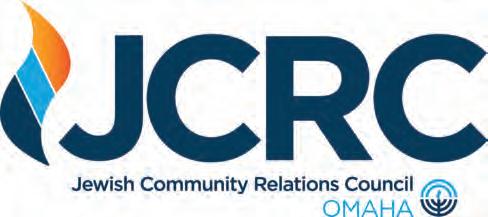
The work of supporting the most vulnerable in our community is crucial to our values as a Jewish community.
Many people are afraid to leave their homes for food and supplies, and we are collecting a number of items to donate. Please refer to our website if you would like to contribute. Please bring donations to the JCC front entrance MondayFriday during regular business hours until further notice. We are coordinating with our partners in the immigrant community for distribution.
Thank you for your generosity during this distressing time. If you have any questions or con-
cerns, please contact Pam Monsky or Sharon Brodkey at the JCRC office.
PHILISSA CRAMER
JTA
Police in Brookline, Massachusetts, are investigating after a brick with “Free Palestine” written in red paint was thrown through the window of a kosher grocery store.
The Butcherie is one of the Boston area’s only kosher grocers, selling kosher meat and prepared foods from its home in Coolidge Corner, a hub of Jewish commercial activity in the heavily Jewish suburb of Boston.
Police chief Jennifer Paster said in a statement that a preliminary investigation showed that at least two people wearing masks approached the store and threw the brick just after midnight on Sunday morning. She said her department was investigating the attack as a hate crime.


The incident comes at a time of high anxiety for American Jews, following three high-profile violent attacks on Jewish targets carried out by people who said they were acting out of concern for Palestinians.
The Butcherie posted a picture of its broken front window and of the brick on social media. “Let us be clear: this was not a statement of protest, it was an attack on the Jewish community. This was not about policy or politics. It was an act meant to threaten, to isolate, and to target us for who we are,” the store wrote. “We are disturbed and saddened, but we are not shaken. We will not be silenced or intimidated. The Jewish people have endured far worse and have always stood tall, with dignity and unity. We will continue to serve our community proudly and without fear.”
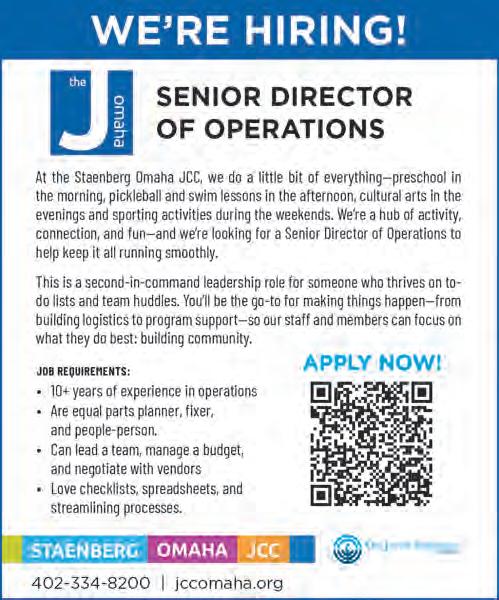





ANNOUNCEMENT
CLASSIFIED ADVERTISING in over 150 newspapers. Reach thousands of readers for $225/25 word ad. Contact the Jewish Press or call 1-800-369-2850.
HELLO NEBRASKA! Introducing www.nepublicnotices.com, a new public notice website presented as a public service by all Nebraska newspapers. Free access, fully searchable – because democracy depends upon open government and your right to know.
40th (FINAL) Nebraska Vietnam Veterans Reunion August 1417th 2025. Younes Conference Center, Kearney, Nebraska. All Vietnam Era Veterans, Spouses, Family, Gold Star Families Welcome. For INFO: VetsReunion.com. 308 233 1612
BANKRUPTCY RELIEF! Help stop Creditor Harassment, Collection Calls, Repossession and Legal Actions! Speak to a Professional Attorney and Get the Help You NEED! Call NOW 844-215-3629
AFFORDABLE PRESS Release service. Send your message to 155 newspapers across Nebraska for one low price! Call 1-800369-2850 or www.nebpress.com for more details.
PORTABLE OXYGEN Concentrator? May be covered by Medicare! Reclaim independence and mobility with the compact design and long-lasting battery of Inogen One. Free information kit! Call 855-385-3580.
GUN SHOW: June 27-29,2025, Westfair, Council Bluffs, IA Fri 49pm, Sat. 9am-5pm, Sun. 9am-3pm. $10 (under 14 FREE) . More info: 563-608-4401 www.marvkrauspromotions.net
DOES YOUR basement or crawl space need some attention? Call Thrasher Foundation Repair! A permanent solution for waterproofing, failing foundations, sinking concrete and nasty crawl spaces. FREE Inspection & Same Day Estimate. $250 off ANY project with code GET250. Call 1-844-958-3431
REPLACE YOUR roof with the best looking and longest lasting material steel from Erie Metal Roofs! Three styles and multiple colors available. Guaranteed to last a lifetime! Limited Time Offer up to 50% off installation + Additional 10% off install (for military, health workers & 1st responders.) Call Erie Metal Roofs: 1-888316-7713
ASAF ELIA-SHALEV
JTA
More than 230,000 American Jews voted in the 2025 election for the World Zionist Congress, setting a new turnout record and nearly doubling participation compared to the last election five years ago, according to preliminary results released Thursday by the American Zionist Movement.
The tally excludes nearly 20,000 votes that the body overseeing the election determined had been cast fraudulently and disqualified.
The results suggest heightened interest among American Jews in shaping Zionist priorities, as 152 delegates from the United States — nearly one-third of the 525-member Congress — prepare to travel to Jerusalem this October to help decide how over $1 billion in annual funding will be allocated to Jewish and Israeli institutions.
The right-wing and Orthodox bloc repeated its strength from the last election, appearing to once again secure a majority of votes despite a surge in support for several leading liberal slates.
The top vote-getter was the Vote Reform slate, representing the Reform movement, U.S. Jewry’s largest denomination, with about 48,000 votes. The liberal-leaning slate won some 16,000 more votes than the last election, when it also placed first, but its vote share dropped from 26% to 21%. The slate said the result shows that the Reform movement is the leading voice of American Jewry.
“This is more than just a win for our slate — it is a resounding mandate for the values we champion,” Rabbi Rick Jacobs, President of the Union for Reform Judaism, said in a statement.
Am Yisrael Chai came in second place with about 32,00 votes, or about 14% of the total. Positioned as a centrist and Orthodox voice, the slate proved successful in courting Jewish
college students and young professionals with its focus on pro-Israel advocacy, Jewish pride and promoting “love of Torah.”
Eretz Hakodesh, an Orthodox slate whose debut in the last election helped tip the balance of power at the World Zionist Congress in favor of the right-wing bloc for the first time, placed third with about 29,000 voters. Mercaz USA, represent-
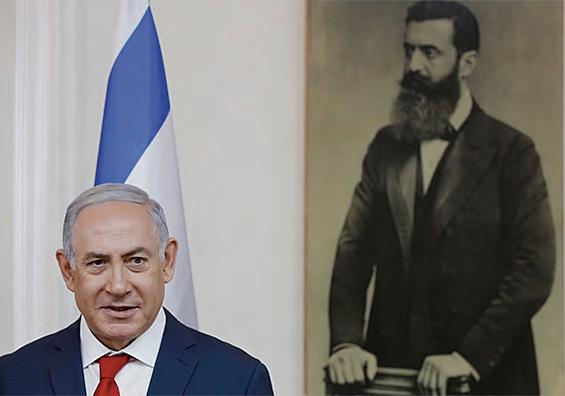
ing Conservative Judaism, was fourth with 28,000 votes, and Orthodox Israel Coalition-Mizrachi, the political arm of Modern Orthodoxy, secured about 27,000 votes.
In all, 22 slates competed in the U.S. election, up from 14 in 2020 — a sign of growing political, religious and generational diversity among American Jews. The election, administered by the American Zionist Movement, took place from March 10 to May 4, with 224,237 valid votes cast online and an addi-
tional 6,020 by mail.
“American Jews have spoken — through their record-breaking turnout in the 2025 World Zionist Congress election, they have powerfully demonstrated that Zionism in the United States is not only alive and well but stronger than ever,” said AZM executive director Herbert Block in a statement.
“Thanks to this historic participation in the election, U.S. Jewry is poised to make an indelible mark when the World Zionist Congress gathers in October.”
The record turnout was marred by the discovery of what election officials described as “serious voting irregularities.”
According to the AZM, an investigation uncovered schemes involving prepaid credit cards and anonymized emails used to fraudulently submit ballots on behalf of five slates. A sixth slate was found to have benefited from invalid paper registrations.
As a result, 18,948 ballots were disqualified and excluded from the vote totals. Officials have not named the slates involved and say further penalties may follow pending the results of continuing investigations and legal challenges.
The AZM said it would release the final delegate allocations after additional reviews and once pending cases before the AZM Tribunal and the Zionist Supreme Court, the World Zionist Congress’s judicial authority in Jerusalem, are resolved.
The World Zionist Congress, established by Theodor Herzl in 1897, meets every five years and serves as the governing body of the World Zionist Organization. It influences leadership appointments and funding decisions across major Israeli and Jewish institutions, including the Jewish Agency, which is involved in immigration and the Jewish National Fund, which has power over land use across large swaths of the country.
The 39th Congress will convene in Jerusalem from Oct. 28 to 30.
